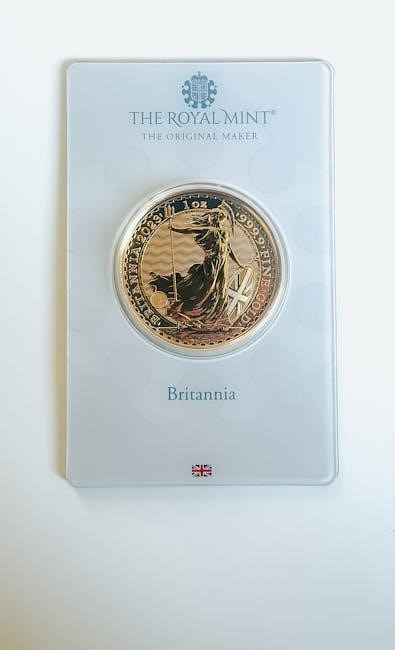Delivered by Queen Elizabeth I in 1588, the Tilbury Speech is her most famous address, inspiring troops against the Spanish Armada, showcasing her leadership and rhetoric.
1.1 Overview of the Speech and Its Historical Significance
The Tilbury Speech, delivered by Queen Elizabeth I on August 9, 1588, is one of the most iconic moments in British history. Addressing her troops at Tilbury, Essex, as they prepared to defend England against the Spanish Armada, Elizabeth’s speech showcased her exceptional leadership and rhetorical skill. She famously declared, “I know I have the body but of a weak and feeble woman, but I have the heart and stomach of a king.” This speech not only rallied her troops but also cemented her legacy as a strong and determined monarch. Its historical significance lies in its ability to inspire unity and courage during a time of national crisis, making it a cornerstone of Elizabethan history. The speech is widely studied and remains a powerful symbol of leadership and patriotism. It is also available in PDF format for educational purposes, ensuring its enduring relevance.
Historical Context of the Tilbury Speech
The Tilbury Speech occurred in 1588 amid the Spanish Armada’s threat to England. Queen Elizabeth I’s leadership during this crisis unified her troops and strengthened national resolve.
2.1 The Spanish Armada and the Threat to England
The Spanish Armada, sent by King Philip II in 1588, aimed to overthrow Queen Elizabeth I and restore Catholicism in England. This formidable fleet posed a significant threat, prompting Elizabeth to rally her forces at Tilbury. The Armada’s defeat marked a pivotal moment in English history, securing Elizabeth’s legacy and establishing England as a major naval power. The Tilbury Speech, delivered during this crisis, became a symbol of national unity and resilience, inspiring troops to defend their homeland against foreign invasion.
2.2 Queen Elizabeth I’s Reign and Leadership
Queen Elizabeth I ruled England from 1558 to 1603, navigating a tumultuous period marked by religious strife and external threats. Her leadership during the Spanish Armada crisis showcased her strategic prowess and ability to inspire loyalty. Elizabeth’s reign, often called the “Golden Age,” transformed England into a major European power. Despite societal norms that favored male leaders, she successfully led her nation for over four decades, earning admiration for her intelligence and resilience. The Tilbury Speech exemplified her leadership style, blending authority with empathy, and cemented her reputation as one of history’s most effective monarchs.

Content of the Tilbury Speech
Elizabeth’s speech emphasized trust in her troops, expressing courage and unity. She highlighted England’s strength and her personal commitment to defending the nation against the Spanish Armada.
3.1 Key Themes and Messages in the Speech
The Tilbury Speech is renowned for its powerful themes of trust, courage, and unity. Elizabeth expressed unwavering confidence in her troops, emphasizing their collective strength against the Spanish Armada. She underscored her personal commitment to England’s defense, declaring her willingness to lead by example. The speech also highlighted her strategic use of rhetoric to inspire loyalty and determination. By addressing her troops directly, Elizabeth fostered a sense of camaraderie and shared purpose. Her words defied gender norms, showcasing her authority and resolve. The speech remains a testament to her leadership and ability to rally her people in times of crisis, leaving a lasting legacy in British history.
One of the most memorable lines from the Tilbury Speech is Elizabeth’s declaration, “I know I have the body but of a weak and feeble woman.” This statement, while acknowledging societal views of women as fragile, was a strategic rhetorical move to connect with her troops. By humbling herself, Elizabeth emphasized her role as a unifying leader, transcending gender norms. She juxtaposed her physical form with the strength of her resolve, reinforcing her commitment to defend England. This line has become iconic, symbolizing her ability to inspire loyalty and courage, while challenging perceptions of female leadership in a male-dominated era.

Rhetorical Strategies in the Tilbury Speech
3.2 The Famous Line: “I Know I Have the Body but of a Weak and Feeble Woman”
Elizabeth’s iconic line, “I know I have the body but of a weak and feeble woman,” masterfully addresses gender stereotypes while asserting her strength. By acknowledging her physical form, she connects with her troops, emphasizing her shared humanity. This phrase, though humble, underscores her resolve and leadership, challenging notions of female frailty. It serves as a rhetorical tool to inspire loyalty and unity, proving her ability to lead despite societal expectations. This line remains a defining moment in her speech, highlighting her strategic use of self-deprecation to amplify her authority and commitment to England’s defense.
4.1 The Use of Rhetoric to Inspire and Unite the Troops
Elizabeth’s speech at Tilbury masterfully employed rhetoric to inspire and unite her troops. She used emotional appeals to foster loyalty, emphasizing shared purpose and collective strength. By framing the Spanish Armada as a threat to England’s liberty, she transformed the battle into a unifying national cause. Her words created a sense of solidarity, encouraging soldiers to fight not just for their queen but for their country; This rhetorical strategy not only boosted morale but also cemented her legacy as a leader who could rally her people in times of crisis. Her speech remains a testament to the power of rhetoric in uniting and inspiring others.
4.2 The Role of Gender in Shaping the Speech’s Tone and Delivery
Queen Elizabeth I’s gender played a significant role in shaping the tone and delivery of her Tilbury Speech. In a male-dominated era, she skillfully navigated expectations by asserting her authority while acknowledging her femininity. Her famous line, “I know I have the body but of a weak and feeble woman,” was a strategic move to connect with her troops, transforming her perceived vulnerability into a symbol of strength. By balancing maternal imagery with martial resolve, she crafted a unique tone that resonated deeply with her audience. This blend of gendered rhetoric reinforced her leadership and earned her admiration as a powerful female ruler.
Impact of the Tilbury Speech
The Tilbury Speech boosted troop morale, solidifying Elizabeth’s legacy as a unifying leader. Its rhetoric became iconic, enduring in British history and educational resources like PDFs.
5.1 Immediate Effects on the Troops and the Battle Against the Spanish Armada
Queen Elizabeth I’s Tilbury Speech profoundly inspired her troops, fostering unity and courage. Her words strengthened their resolve, preparing them to face the Spanish Armada. The speech emphasized trust and shared purpose, boosting morale and readiness for battle. Though the Armada was ultimately defeated by weather, Elizabeth’s address played a pivotal role in rallying her forces. Its immediate impact was evident in the troops’ determination and loyalty, solidifying her reputation as a strong leader. The speech’s availability in PDF format today highlights its enduring relevance for historical and educational study.
- Boosted troop morale and unity.
- Highlighted trust between the queen and her people.
- Prepared forces for the looming battle.
- Played a key role in England’s defensive strategy.
5.2 Long-Term Legacy of the Speech in British History
Elizabeth I’s Tilbury Speech left an indelible mark on British history, symbolizing courage and leadership. It cemented her status as a national icon, embodying the spirit of resilience against foreign threats; The speech’s rhetoric has been studied for its masterful use of language, inspiring future leaders. Its availability in PDF format ensures its continued relevance in education and historical research. The speech remains a powerful symbol of unity and determination, influencing British identity and political discourse for centuries. Its legacy endures as a testament to Elizabeth’s reign and the defense of England during a pivotal moment in history.
Authenticity and Debate Surrounding the Speech
Debate persists about the speech’s authorship and delivery, with some questioning its authenticity. However, it is widely accepted as embodying Elizabeth’s spirit and leadership during the crisis.
6.1 Questions About the Speech’s Authorship and Delivery
Scholars debate the Tilbury Speech’s authorship, as the original text was not preserved. Its authenticity is questioned, with some arguing it may have been written by Elizabeth’s secretaries or embellished later. While Elizabeth likely addressed her troops, the exact wording and delivery remain uncertain. The speech’s famous lines, such as “I have the body but of a weak and feeble woman,” were first published decades after her reign, raising doubts about their accuracy; Despite these questions, the speech is widely regarded as a powerful symbol of Elizabeth’s leadership and remains a defining moment in British history.

The Tilbury Speech in Modern Times
The Tilbury Speech remains significant in contemporary studies, with its PDF versions widely used in education, preserving its historical relevance and Elizabeth I’s enduring legacy.
7.1 The Speech’s Relevance in Contemporary Historical Studies
The Tilbury Speech remains a cornerstone in historical studies, offering insights into Elizabeth I’s leadership and rhetoric. Scholars analyze its role in shaping national identity and gender perceptions. Its availability in PDF formats has made it accessible for educational purposes, ensuring its legacy endures. Modern researchers examine how Elizabeth used language to inspire loyalty and resilience, highlighting her strategic communication skills. The speech also serves as a testament to the cultural and political dynamics of the Elizabethan era, making it a vital resource for understanding the period’s complexities and the queen’s enduring impact on British history and identity.

7.2 The Availability of the Speech in PDF Format for Educational Purposes
The Tilbury Speech is widely available in PDF format, making it easily accessible for educational purposes. Students and educators can download or read the speech online for free, facilitating its study in classrooms and research. The PDF format ensures that the speech’s original tone and structure are preserved, allowing for accurate analysis of its rhetorical strategies. This accessibility has made the speech a popular resource for teaching historical communication, leadership, and the cultural context of Elizabethan England. Its availability in digital formats ensures its relevance for modern learners, bridging the past with contemporary educational needs and fostering a deeper understanding of this pivotal moment in history.
The Tilbury Speech remains a milestone in history, exemplifying Queen Elizabeth I’s leadership and oratory prowess. Its availability in PDF format ensures its continued relevance, offering insights into her strategies and the historical context. This speech not only united troops against the Spanish Armada but also cemented Elizabeth’s legacy as a powerful leader. Its enduring impact highlights the importance of effective communication in shaping history and inspiring future generations. The speech’s preservation in digital formats makes it accessible for educational purposes, ensuring its lessons on leadership and rhetoric are not forgotten.
